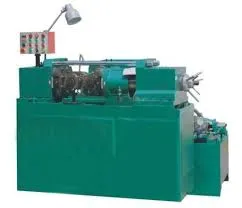
-
 Afrikaans
Afrikaans -
 Albanian
Albanian -
 Amharic
Amharic -
 Arabic
Arabic -
 Armenian
Armenian -
 Azerbaijani
Azerbaijani -
 Basque
Basque -
 Belarusian
Belarusian -
 Bengali
Bengali -
 Bosnian
Bosnian -
 Bulgarian
Bulgarian -
 Catalan
Catalan -
 Cebuano
Cebuano -
 Corsican
Corsican -
 Croatian
Croatian -
 Czech
Czech -
 Danish
Danish -
 Dutch
Dutch -
 English
English -
 Esperanto
Esperanto -
 Estonian
Estonian -
 Finnish
Finnish -
 French
French -
 Frisian
Frisian -
 Galician
Galician -
 Georgian
Georgian -
 German
German -
 Greek
Greek -
 Gujarati
Gujarati -
 Haitian Creole
Haitian Creole -
 hausa
hausa -
 hawaiian
hawaiian -
 Hebrew
Hebrew -
 Hindi
Hindi -
 Miao
Miao -
 Hungarian
Hungarian -
 Icelandic
Icelandic -
 igbo
igbo -
 Indonesian
Indonesian -
 irish
irish -
 Italian
Italian -
 Japanese
Japanese -
 Javanese
Javanese -
 Kannada
Kannada -
 kazakh
kazakh -
 Khmer
Khmer -
 Rwandese
Rwandese -
 Korean
Korean -
 Kurdish
Kurdish -
 Kyrgyz
Kyrgyz -
 Lao
Lao -
 Latin
Latin -
 Latvian
Latvian -
 Lithuanian
Lithuanian -
 Luxembourgish
Luxembourgish -
 Macedonian
Macedonian -
 Malgashi
Malgashi -
 Malay
Malay -
 Malayalam
Malayalam -
 Maltese
Maltese -
 Maori
Maori -
 Marathi
Marathi -
 Mongolian
Mongolian -
 Myanmar
Myanmar -
 Nepali
Nepali -
 Norwegian
Norwegian -
 Norwegian
Norwegian -
 Occitan
Occitan -
 Pashto
Pashto -
 Persian
Persian -
 Polish
Polish -
 Portuguese
Portuguese -
 Punjabi
Punjabi -
 Romanian
Romanian -
 Russian
Russian -
 Samoan
Samoan -
 Scottish Gaelic
Scottish Gaelic -
 Serbian
Serbian -
 Sesotho
Sesotho -
 Shona
Shona -
 Sindhi
Sindhi -
 Sinhala
Sinhala -
 Slovak
Slovak -
 Slovenian
Slovenian -
 Somali
Somali -
 Spanish
Spanish -
 Sundanese
Sundanese -
 Swahili
Swahili -
 Swedish
Swedish -
 Tagalog
Tagalog -
 Tajik
Tajik -
 Tamil
Tamil -
 Tatar
Tatar -
 Telugu
Telugu -
 Thai
Thai -
 Turkish
Turkish -
 Turkmen
Turkmen -
 Ukrainian
Ukrainian -
 Urdu
Urdu -
 Uighur
Uighur -
 Uzbek
Uzbek -
 Vietnamese
Vietnamese -
 Welsh
Welsh -
 Bantu
Bantu -
 Yiddish
Yiddish -
 Yoruba
Yoruba -
 Zulu
Zulu
Manufacturers of Flat Die Thread Rolling Machines and Their Innovative Production Techniques
The Evolution and Importance of Thread Rolling Machine Flat Die Factories
Thread rolling machines play a crucial role in the manufacturing of various components, especially in industries where precise threads are required for bolts, screws, and other fastening applications. Among the different types of thread rolling techniques, flat die thread rolling has emerged as a popular and efficient method for shaping threads on cylindrical workpieces. This article explores the significance of flat die thread rolling machines and the factories that produce them, highlighting their technology, manufacturing processes, and contribution to the industry.
The Technology Behind Thread Rolling Machines
Thread rolling is a cold-forming process that involves the pressing of metal into a die to create threads with minimal material loss and outstanding precision. Flat die thread rolling machines consist of two parallel dies that move together to compress the workpiece, forming threads as the material flows into the grooves of the dies. This method is favored for its ability to produce high-strength threads that have superior surface finishes compared to traditional cutting methods.
Modern thread rolling machines are equipped with advanced features such as digital controls, automated feeding systems, and high-speed operations, making them efficient and user-friendly. These machines can handle a variety of materials, including steel, aluminum, and brass, thereby expanding their applicability across different industries.
The Manufacturing Process in Flat Die Factories
Flat die thread rolling factories engage in a meticulous manufacturing process that involves the design, production, and quality control of thread rolling machines. The process begins with the selection of high-quality materials suitable for the dies, ensuring durability and performance. Engineers utilize state-of-the-art CAD (Computer-Aided Design) software to create precise designs of the dies and the machine structure, allowing for customization based on client requirements.
Once the designs are finalized, the manufacturing process starts with machining the die components using CNC (Computer Numerical Control) machines for enhanced accuracy. Subsequent steps include heat treatment to improve the hardness of the dies, surface finishing for enhanced performance, and assembly of the machine components. Strict quality control measures are implemented at each stage to guarantee that the final products meet industry standards and specifications.
thread rolling machine flat die factories

Significance in the Industry
Flat die thread rolling machines are essential across a multitude of sectors, including automotive, aerospace, manufacturing, and construction
. The ability to produce high-precision threads efficiently transforms the manufacturing landscape, allowing industries to meet stringent quality requirements while reducing production time.Moreover, the use of thread rolling machines contributes to sustainability efforts. These machines generate less waste material than traditional machining processes, thereby minimizing environmental impact. Additionally, the increased strength of rolled threads reduces the likelihood of product failure, which can lead to costly recalls and heightened consumer safety concerns.
Challenges and Future Directions
Despite their advantages, thread rolling machine flat die factories face challenges such as competition from alternative fastening methods and the demand for increasingly complex thread designs. To address these issues, manufacturers are investing in research and development to innovate their machines and introduce automation and AI-enhanced operations.
As industries continue to evolve and adopt new technologies, the significance of thread rolling machines will only grow. Factories that specialize in these machines must adapt and remain at the forefront of technological advancements to maintain their competitive edge in the market.
Conclusion
Thread rolling machine flat die factories represent a vital segment of the manufacturing industry, providing high-quality products that ensure the reliability and efficiency of threaded components. By embracing innovation and maintaining high standards of production, these factories can continue to shape the future of manufacturing, meeting the evolving needs of industries worldwide.
